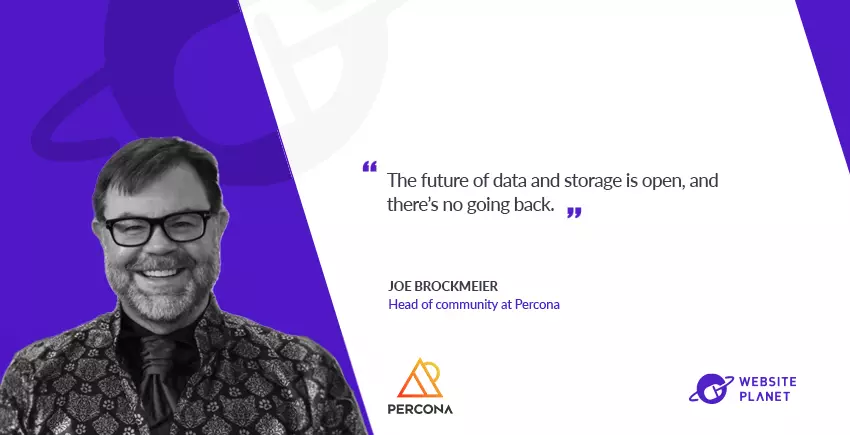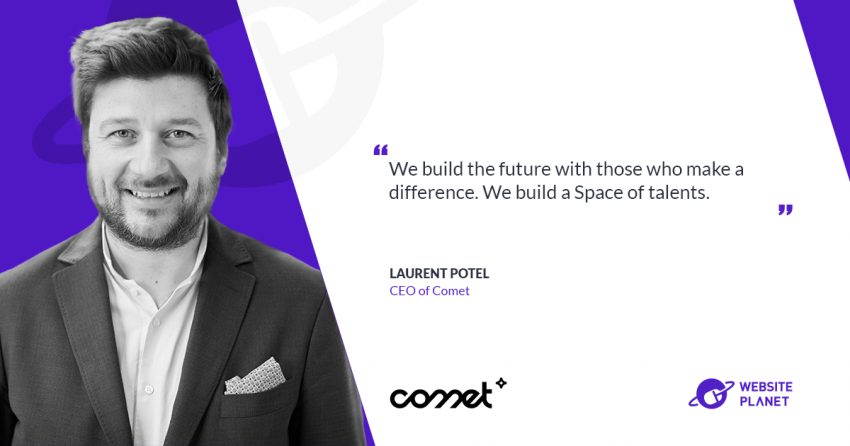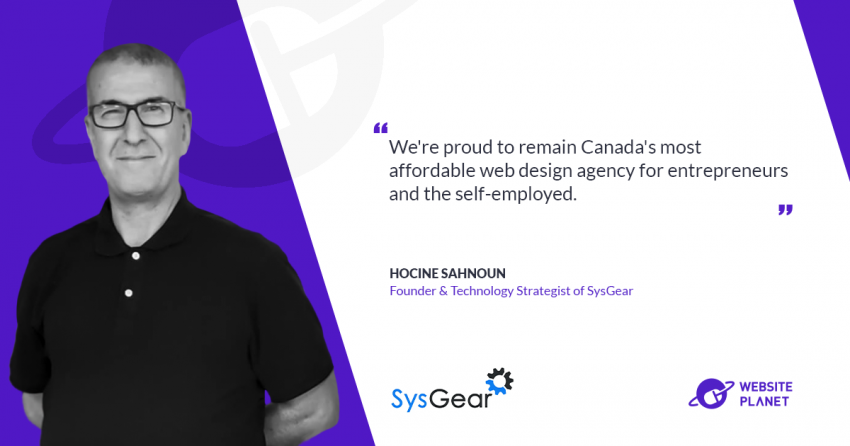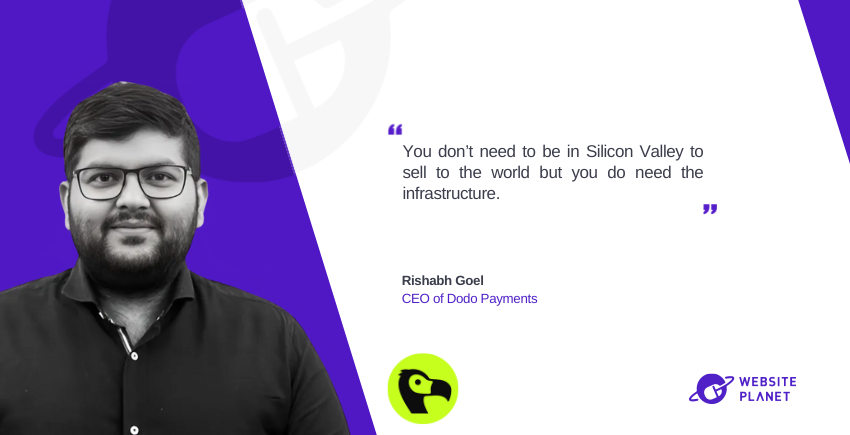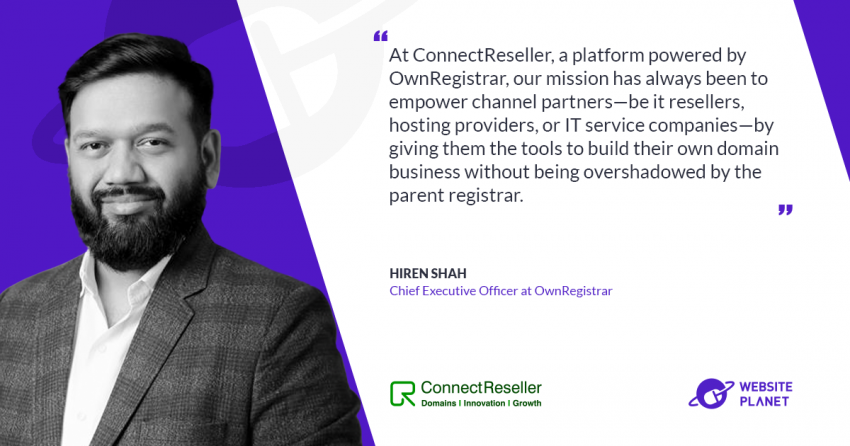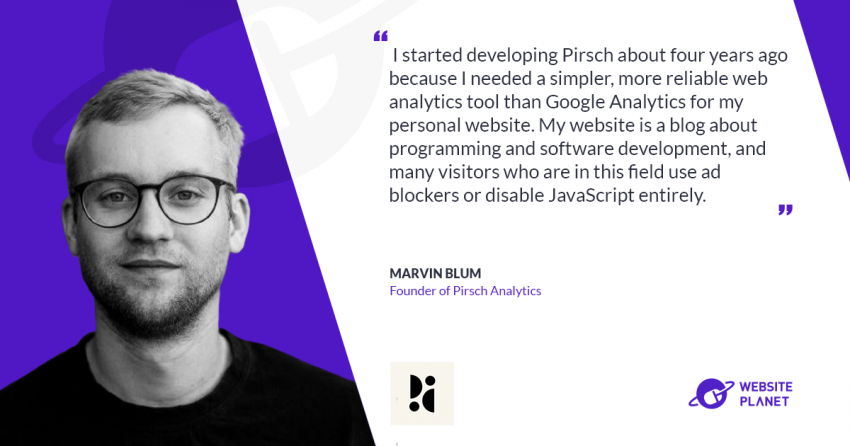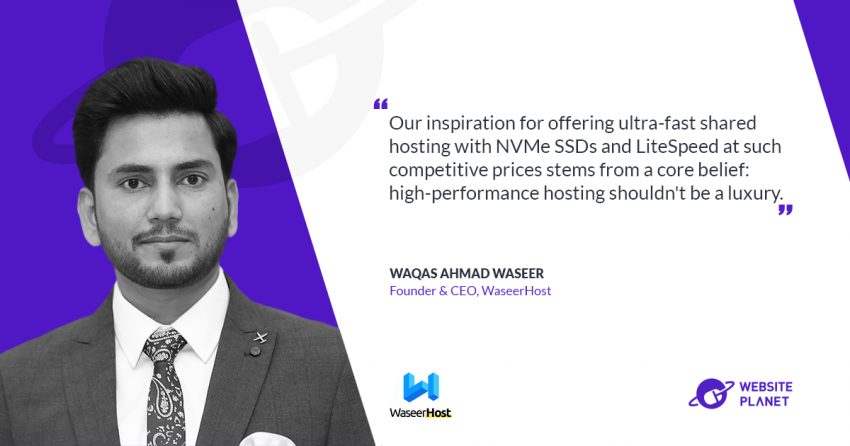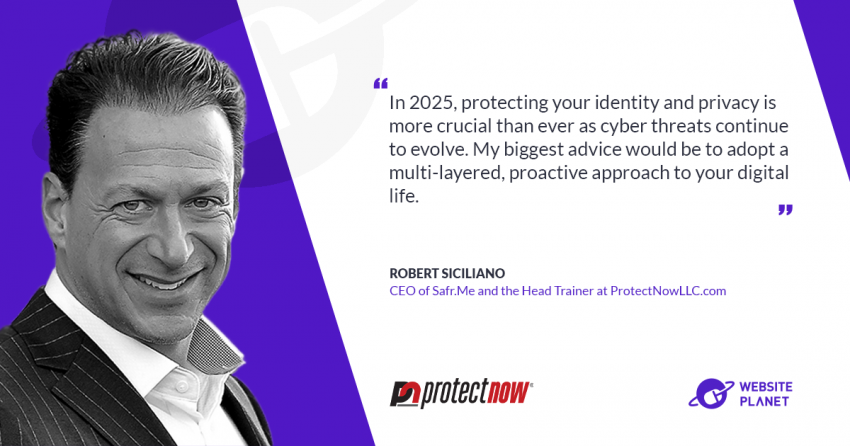Today’s talk between
Website Planet and Joe Brockmeier, head of community at Percona, is also a celebration of WordPress 20th anniversary. We will look at how this CMS project started by two developers has become a massive community of 60 millions website owners in over 100 languages, what role MySQL played in this success, and what this anniversary means for data and storage professionals, as well what’s in the future for MySQL.
What is your background and what’s your role now with Percona?
Currently I am head of community with Percona. I’ve been involved with open source for more than 24 years in various roles – participating directly in communities like Fedora, CentOS, openSUSE, and Apache CloudStack, and as a member of the Apache Software Foundation (ASF) and VP of Marketing for the ASF for about 18 months. Prior to that I spent many years as a contributing editor or editorial staff for multiple print and online open source and tech publications.
Since its inception in 2003, WordPress has been part of the toolkit for almost all of these projects at some point, helping publications, projects, and companies to reach their audiences.
How did Percona start, and how did the WordPress massive adoption impact it?
Peter Zaitsev and Vadim Tkachenko co-founded Percona as a two-person team that offered consulting services for MySQL performance.
WordPress hasn’t been a huge slice of Percona’s business directly. What WordPress did was increase MySQL awareness and make more people familiar with the database and how easy it was to get started with. This adoption thanks to WordPress has surely helped lead to more companies working with MySQL and needing support and services, overall.
What have been in your experience the most important moments in WordPress history?
First and foremost, the most important moment was the launch and Matt Mullenweg’s choice to base WordPress on b2. This was completely open source under the GPLv2 and used the LAMP stack as its underlying platform.
Had WordPress been proprietary or under a permissive license, I doubt it’d have caught on the same way. The proprietary blogging platforms like Movable Type struggled to grow, and a permissively licensed platform would likely have fragmented. It was the right project at the right time using a technology stack that allowed it to flourish with a license that discouraged fragmentation.
The introduction of the theming system with WP 1.5 and the introduction of plugins with 2.0 made WordPress more than “just” a blogging platform, but an extensible platform for running websites beyond blogs.
The creation of the WordPress Foundation to hold the WordPress trademarks and steward the project is another major moment for WordPress. The clear delineation between the commercial interests of Matt Mullenweg’s company and WordPress as a community helped the project continue to grow.
How has MySQL contributed to the success and longevity of WordPress over the past twenty years?
MySQL was the perfect database for a platform like WordPress. It was performant enough to handle high traffic sites, but simple enough to deploy and administer that you didn’t need to be a DBA to stand up or manage a WordPress site or sites.
Early on, the WordPress project had entertained supporting other SQL databases like PostgreSQL. This support never really materialized, likely because there just wasn’t enough interest to sustain the work. MySQL was good enough, open source, had a robust community, and it was relatively easy to use, even when setting up advanced features like replication.
Can you discuss the main challenges that data and storage professionals have faced in managing WordPress sites powered by MySQL, and how have you tackled them?
Really experienced data and storage professionals and DBAs have likely not found WordPress very challenging compared to custom applications. The main thing around the combination of WordPress and the LAMP stack was how it made it easy to get started, and then could scale with you as you needed more functionality.
The primary challenge posed by WordPress would be ensuring that your MySQL infrastructure is adequate for traffic spikes without over-resourcing. This was probably most true in the earlier days of WordPress when we were working with much more modest hardware.
If your site was Slashdotted or otherwise received a sudden and unexpected spike in traffic, you’d soon discover whether you’d adequately tuned MySQL and if you were in need of replicas, etc.
The other main challenge was around security, especially if you were responsible for shared hosting setups or other multitenancy considerations.
What does this anniversary mean for data and storage professionals?
For those data and storage professionals who believed in and advocated open source technologies like MySQL, I think this anniversary is an enormous validation. One survey by W3Techs says that WordPress has a 43% market share of all websites. Of all websites!
That means, by extension, that MySQL (and now MariaDB) has a 43% market share of all websites – in addition to all its other workloads and its use with other open source Content Management Systems.
It means the future of data and storage is open, and there’s no going back.
How do you envision the future of WordPress and MySQL, and what opportunities do you see for aspiring online entrepreneurs?
The future for WordPress and MySQL remains bright. There’s no evidence that WordPress is likely to be dethroned, and where there’s WordPress there’s MySQL.
That said, WordPress is a fairly mature platform. It will continue to evolve and improve, but its roadmap is probably going to be one of modest change and not huge leaps forward as it was in the early days. That’s not a bad thing! It means it’s a stable platform that does the job.
With online publishing and communications in particular, I think there’s a huge opportunity for new platforms in the federated social space. And those may prove interesting for data and storage pros trying to support real-time, federated applications.
And how do you plan to cope? What’s in your roadmap for the next future?
Well, Percona is here to help support organizations using MySQL, PostgreSQL and MongoDB to run today’s applications and tomorrow’s. If you are running a site or application that needs to scale around data, then we can help you to improve performance without simply throwing more money or more cloud at the problem.
Alongside looking at what happens in the next twenty years around WordPress, we have our eyes on other challenges, like supporting open source databases on Kubernetes through our Operators and helping organizations with their cloud-native apps as well as traditional applications.
The next few years should be interesting indeed with increased Kubernetes adoption, technologies like WASM, and a lot of other technological changes that will impact data storage and database systems. As those changes manifest, the open source community around projects like MySQL and PostgreSQL responds to support those changes in the best possible way.
